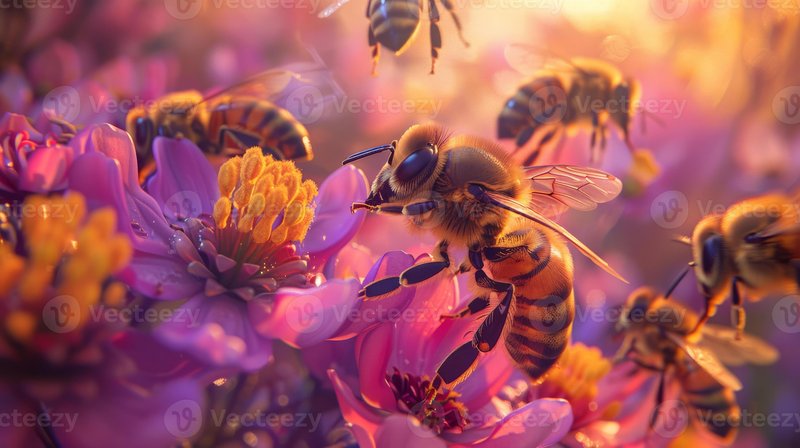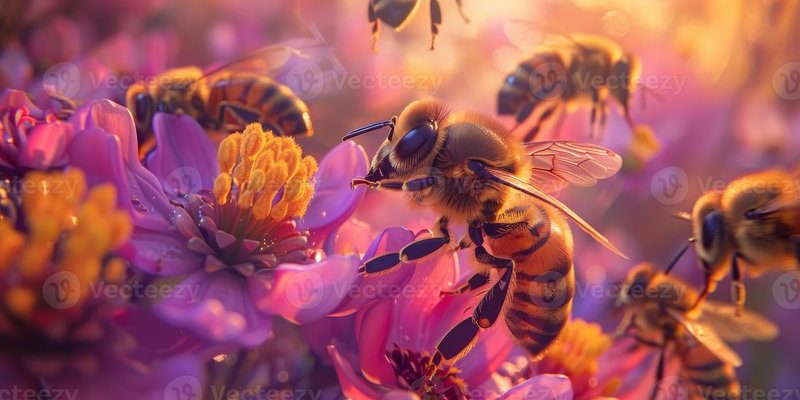
So why are these bees so important? Let me explain. Mason bees are incredibly efficient at pollinating more varieties of plants than many other types of bees. They are known for their unique nesting habits, which often involve using pre-existing holes in wood or even in your backyard. Think of them as the DIY pollinators, making their homes from whatever they can find. As we dive deeper into their role in pollination, you’ll see just how essential they are for our food supply and biodiversity.
What Are Mason Bees?
Mason bees belong to the genus *Osmia*, and there are over 140 species of them! They are often recognized by their distinct, fuzzy bodies and black or metallic blue coloring. Unlike honeybees, mason bees don’t live in large colonies. Instead, they prefer to go solo, creating their nests in small holes in wood, mud, or even plant stems. This solitary lifestyle might make them seem less important, but don’t be fooled!
Mason bees are active early in the spring when many flowers are blooming. This timing is key because it aligns perfectly with their pollination needs. As they venture out to collect pollen and nectar, they inadvertently transfer pollen from one bloom to another, which is vital for plant fertilization. They’re like nature’s little delivery service, ensuring that plants can produce fruits and seeds.
The Pollination Process
You might be wondering how pollination works, especially in the context of mason bees. Here’s the scoop: as mason bees land on a flower, they collect pollen on their bodies while sipping nectar. When they move from one flower to the next, they inadvertently carry that pollen along. This movement is critical because it facilitates fertilization.
Pollination can be likened to a dance; the flowers do their part by attracting the bees with bright colors and sweet smells, while the bees make the rounds, ensuring genetic mixing and diversity among plants. Here’s how the process unfolds:
- Finding Flowers: Mason bees are drawn to specific types of flowers, especially those with a simple structure like fruit trees, willows, and berries.
- Pollen Collection: They use their furry bodies to gather pollen, which sticks to them as they move. This is where the magic begins.
- Pollen Transfer: When the bee visits another flower, some of that pollen rubs off, allowing for cross-pollination. This is essential for many plants to produce seeds and fruits.
By moving between flowers, they support biodiversity and ensure many plants can thrive. It’s a beautiful partnership, showing how interlinked nature can be!
Benefits of Mason Bees in Agriculture
The role of mason bees isn’t just limited to wildflowers; they also make a huge impact on agricultural crops. They are incredibly efficient pollinators, sometimes outperforming honeybees in certain scenarios. Here’s why they matter in farming:
1. Increased Crop Yields: Studies have shown that fields with mason bees receive a significant boost in fruit set and seed production. Crops like blueberries, cherries, and almonds thrive with their help.
2. Low Maintenance: Mason bees are solitary and require less management compared to honeybees. You don’t need to keep them in hives or worry about transporting them to different fields.
3. Early Season Pollination: They emerge in early spring, which is often when many fruit trees bloom. This early activity is crucial since many other pollinators might not be active yet.
As you can see, these little hard workers are essential for maintaining not just our gardens, but our entire agricultural system.
How to Attract Mason Bees to Your Garden
If you’re interested in welcoming mason bees to your yard, you’re in luck! Attracting them is quite simple. Here are some friendly tips to get started:
- Provide Nesting Sites: Mason bees love to nest in small holes. You can create bee hotels by drilling holes in untreated wooden blocks or using natural materials like bamboo shoots.
- Plant Bee-Friendly Flowers: Incorporate native plants and flowers that bloom in early spring, such as willows, blueberries, and fruit trees. This will provide food sources for the bees.
- Avoid Pesticides: Chemicals can harm not only mason bees but other beneficial insects too. Opt for organic gardening practices to keep your garden safe.
Being proactive about your garden’s ecosystem can lead to a beautiful, buzzing environment filled with life. Plus, you’ll get to enjoy the fruits of their labor!
Conservation of Mason Bees
With increasing urbanization and habitat loss, mason bees face challenges that could impact their populations. This is a concern not just for the bees but for our ecosystems overall. Here’s why conservation matters:
1. Loss of Habitat: Urban development often destroys the natural nesting sites of mason bees. Preserving green spaces can help maintain their populations.
2. Pesticide Use: The overuse of chemicals in gardening and farming can harm not only mason bees but also the environment. Supporting organic farming can be a step toward conservation.
3. Climate Change: Changes in weather patterns affect the timing of blooming flowers and can disrupt the delicate balance of pollination. Protecting mason bees means looking at the bigger picture of sustainability.
By raising awareness and taking steps toward conservation, we can help these vital pollinators thrive.
Mason bees might be small, but their role in the ecosystem is enormous. They are essential for pollinating a variety of plants, which directly contributes to our food supply and the health of our environment. The next time you spot one of these little buzzers, remember that they are not just bees; they are champions of biodiversity and critical allies in our fight for a sustainable future.
As we’ve seen, welcoming mason bees into your garden doesn’t just help them—it ultimately helps all of us. So let’s be thoughtful gardeners, making room for these remarkable pollinators. After all, a thriving garden is a gift that keeps on giving!

